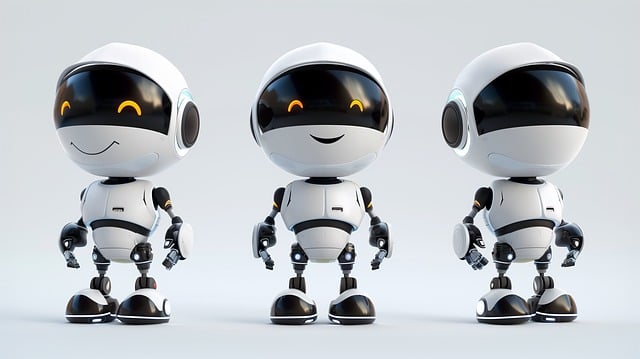Chatbots powered by artificial intelligence (chatbot AI) have transformed human-tech interaction through advanced natural language processing (NLP), offering intuitive, personalized conversations. Essential in customer service, content generation, and various industries, these chatbots continuously learn from interactions to enhance their performance. While chatbot AI revolutionizes digital experiences with instant, tailored support, ethical considerations like privacy, data security, bias mitigation, and transparency are crucial for building user trust. The future of chatbot AI focuses on innovative, ethical practices to ensure it improves human lives while adhering to moral standards.
“Welcome to the evolving world of chatbot AI, where artificial intelligence is transforming human-computer interaction. This article delves into the intricate workings and vast potential of these intelligent assistants. We explore how chatbot AI technologies are revolutionizing industries, from customer service to healthcare. Furthermore, we navigate the ethical landscape and discuss future innovations that may shape our interactions with these virtual agents. Get ready to discover the power and promise of chatbot AI.”
- Understanding Chatbot AI: How They Work and Their Capabilities
- The Rise of Chatbot AI: Benefits and Applications Across Industries
- Navigating the Future: Ethical Considerations and Innovations in Chatbot AI
Understanding Chatbot AI: How They Work and Their Capabilities

Chatbots powered by artificial intelligence (chatbot AI) have transformed the way we interact with technology, offering a seamless and human-like conversational experience. These chatbots utilize advanced natural language processing (NLP) algorithms to understand and interpret user queries, enabling them to provide contextually relevant responses. At their core, chatbot AIs are designed to mimic human dialogue, making interactions feel natural and intuitive.
The capabilities of chatbot AI extend far beyond simple conversation. They can access vast amounts of data, perform complex calculations, and adapt their responses based on user feedback. From customer service and support to personalized recommendations and content generation, these virtual assistants have become indispensable tools for businesses and individuals alike. Their ability to learn from interactions and continuously improve makes them versatile and effective in various industries, revolutionizing the way we engage with digital services.
The Rise of Chatbot AI: Benefits and Applications Across Industries

In recent years, the rise of Chatbot AI has transformed the digital landscape across various industries. These intelligent virtual assistants leverage advanced natural language processing and machine learning algorithms to understand and respond to human queries in real-time. By offering instant, personalized support, chatbots enhance customer experience and satisfaction levels, revolutionizing traditional customer service models.
From healthcare to finance, retail to education, Chatbot AI finds applications galore. They streamline processes by handling routine tasks like booking appointments, providing product recommendations, answering frequently asked questions, and even offering basic financial advice. Moreover, their 24/7 availability ensures constant support for businesses and their customers alike, fostering a sense of accessibility and convenience that traditional customer service models struggle to match.
Navigating the Future: Ethical Considerations and Innovations in Chatbot AI

As chatbot AI continues to evolve, ethical considerations become increasingly vital. With advancements in natural language processing and machine learning, chatbots are becoming more sophisticated, capable of handling complex tasks and engaging in nuanced conversations. However, this power brings responsibility. Developers and users must navigate privacy concerns, ensure data security, and prevent bias and discrimination in chatbot algorithms. Transparency about how AI makes decisions is crucial to building trust with users.
The future of chatbot AI lies in innovation that prioritizes ethical practices. This includes developing robust safeguards against misuse, such as misinformation dissemination or malicious intent. Researchers are exploring methods to make AI chatbots more accountable, transparent, and explainable. By fostering collaboration between technologists, ethicists, and policymakers, we can shape a future where advanced chatbot AI enhances human lives while upholding moral standards.
Chatbot AI has evolved from a novel concept to an integral part of our digital landscape, offering unprecedented benefits across industries. As we look ahead, ethical considerations and ongoing innovations in natural language processing will shape the future of these intelligent assistants, ensuring they remain tools for positive transformation and enhanced human-computer interaction. The continuous development of chatbot AI promises a future where these virtual agents seamlessly integrate into our daily lives, making tasks more efficient and accessible for everyone.
